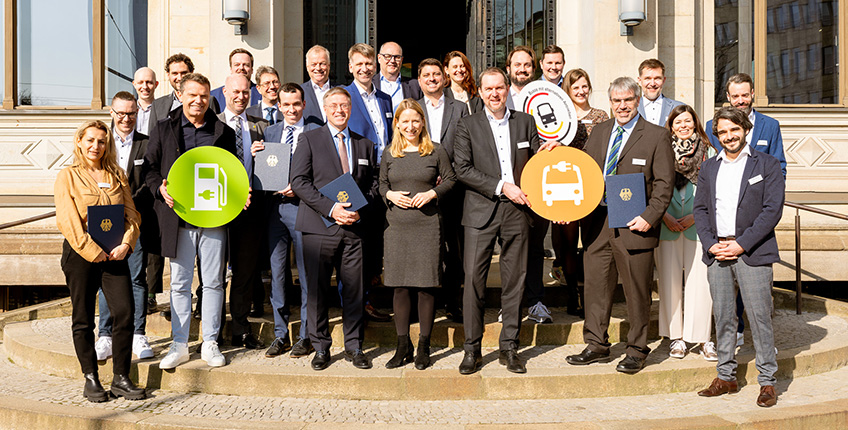Kluckert: We are putting an additional 186 climate-friendly buses on the roads
The Federal Ministry for Digital and Transport (BMDV – Bundesministerium für Digitales und Verkehr) is investing a further 53.4 million euros in the procurement of buses with climate-friendly drive systems and the associated infrastructure. Parliamentary State Secretary Daniela Kluckert today presented the funding decisions to 11 bus companies and 2 districts from across all of Germany.
Daniela Kluckert, Parliamentary State Secretary to the Federal Minister for Digital and Transport: “Switching to alternative drive systems is a tremendous challenge for bus companies. I am therefore delighted that we are able to provide financial support to 13 more companies and districts today to help them switch to clean buses. This will ensure that public transport can get people to their destinations in a manner that is more climate-friendly, less polluting and quieter.”
Today’s funding approvals will put a further 186 new climate-friendly buses on the roads. In total, around 4,000 buses and more than 140 feasibility studies are currently being funded under the guideline – and are therefore helping more than 250 transport companies and public transport authorities to make the switch to climate-friendly public transport. The vehicles are now increasingly being used on Germany’s roads and will contribute to a significant market ramp-up of e-buses.
Funding is provided as part of the “Guideline for the promotion of alternative drive systems for buses in passenger transport” (“Richtlinie zur Förderung alternativer Antriebe von Bussen im Personenverkehr”). The focus of the funding is on electric drive systems. The infrastructure required for operation and the preparation of feasibility studies are also supported. The programme is part of the German government’s 2030 climate protection programme to implement the 2050 climate protection plan and the future package (Zukunftspaket) of the German government’s economic stimulus package. Funding for this measure is also provided as part of the German Recovery and Resilience Plan (DARP – Deutscher Aufbau- und Resilienzplan) via the European Recovery and Resilience Facilities (ARF – Aufbau- und Resilienzfazilitäten) in the Next Generation EU recovery instrument.
Image source: Franz Josef, Berlin


